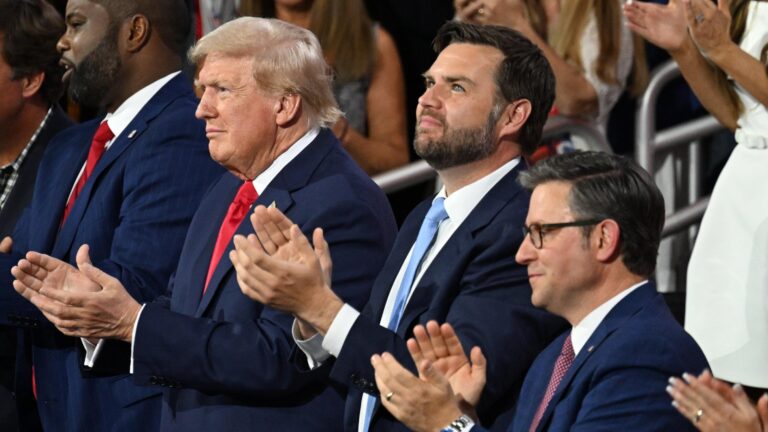What a GOP Trifecta Could Mean for America in 2024 and Beyond
As the 2024 election cycle heats up, the possibility of the Republican Party gaining control over the presidency, the Senate, and the House of RepresentativesŌĆöa GOP trifectaŌĆöhas become a central topic in political conversations. Should Republicans achieve this comprehensive control, it would mark a pivotal moment with far-reaching consequences for the countryŌĆÖs legislative agenda, policy direction, and political atmosphere. This analysis delves into the potential transformations Americans might witness under a unified GOP government, highlighting both the opportunities and obstacles in a politically polarized environment.
Transformations in Federal Policies and Regulatory Frameworks
A Republican trifecta is expected to bring about a marked shift in federal governance, particularly in regulatory and policy domains. Conservative lawmakers are likely to prioritize deregulation efforts, aiming to dismantle or ease restrictions established during previous administrations, especially those related to environmental protections, financial regulations, and labor standards. Industries such as energy production and manufacturing could benefit from reduced regulatory burdens designed to stimulate economic expansion. However, critics caution that such rollbacks might compromise consumer protections and environmental sustainability.
Key anticipated policy adjustments include:
- Streamlining approval for fossil fuel infrastructure projects, including pipelines
- Scaling back Environmental Protection Agency (EPA) enforcement and environmental mandates
- Bolstering funding and authority for law enforcement and border security operations
- Implementing tax reforms that favor businesses and simplify compliance requirements
| Policy Sector | Current Framework | Projected Changes |
|---|---|---|
| Environmental Policies | Strict emissions and pollution controls | Relaxed regulations emphasizing energy self-sufficiency |
| Financial Regulation | Robust post-2008 crisis oversight | Deregulation to enhance market agility |
| Labor Protections | Expanded worker rights and benefits | Potential rollbacks favoring employer flexibility |
Revised Budget Priorities and Tax Policy Overhauls
Should Republicans control all branches of government, expect a reallocation of federal spending with a focus on defense, border security, and infrastructure development. Conversely, social welfare programs may face budget constraints or restructuring. The GOPŌĆÖs fiscal approach often emphasizes reducing government expenditure, which could result in more stringent budget reviews and prioritization of what are deemed essential services.
Tax reforms are also on the horizon, aiming to stimulate economic activity through:
- Lowering individual income tax rates across multiple brackets
- Expanding business tax credits to encourage domestic investment
- Adjusting deduction limits to simplify the tax code
These tax changes are designed to incentivize consumer spending and corporate investment, though they may also affect federal revenue streams that support public programs.
| Spending Category | Projected Adjustment | Expected Outcome |
|---|---|---|
| Defense | Increased funding | Enhanced military readiness and capabilities |
| Social Welfare | Budget reductions or freezes | Potentially reduced benefits for vulnerable populations |
| Tax Incentives | Expansion | Stimulated business growth and investment |
Healthcare and Social Safety Net: Anticipated Reforms
A GOP-controlled government is likely to revisit and potentially overhaul key healthcare and social welfare policies. This could involve tightening eligibility for programs like Medicaid and revising federal funding formulas. The emphasis may shift toward increasing state autonomy in managing social services, alongside efforts to introduce stricter work requirements for welfare recipients.
Areas likely to undergo scrutiny include:
- Modifications or reductions in Affordable Care Act provisions
- Adjustments to Medicare and veteransŌĆÖ healthcare funding
- Implementation of more rigorous work and eligibility standards for welfare programs
- Greater delegation of program management to state governments
| Program | Potential Changes | Expected Timeline |
|---|---|---|
| Medicaid Expansion | Reduced incentives for expansion; increased state control | Within 6 to 12 months post-inauguration |
| Social Security | Discussions on restructuring to ensure sustainability | Ongoing legislative process |
| Welfare Programs | Stricter eligibility and work requirements | Implementation within the first year |
Implications for U.S. Foreign Policy and Global Trade
Unified Republican control could reshape AmericaŌĆÖs international relations and trade strategies. The administration may adopt a more assertive, America-first stance, revisiting existing trade agreements to prioritize domestic industry protection. This approach aims to safeguard U.S. jobs but may introduce volatility in global markets and disrupt established supply chains.
Key international considerations include:
- Stricter enforcement against countries accused of unfair trade practices
- Reevaluation of multilateral agreements such as the USMCA and World Trade Organization commitments
- Preference for bilateral trade negotiations over multilateral frameworks
- Potential escalation in geopolitical tensions affecting global economic stability
| Area of Impact | Short-Term Effects | Long-Term Consequences |
|---|---|---|
| Trade Policy | Heightened tariffs and renegotiations | Increased protectionism and global realignment |
| International Alliances | Selective partnerships | Stronger bilateral ties, diminished multilateral cooperation |
| Market Stability | Volatility due to policy shifts | Emergence of new trade equilibria with alternative partners |
Looking Ahead: Navigating a New Political Era
The potential emergence of a GOP trifecta in 2024 signals a transformative period for American governance. From sweeping policy reforms to shifts in international engagement, the consequences will ripple through every facet of national life. For citizens and observers alike, staying informed and actively participating in the democratic process will be essential as the nation embarks on this consequential chapter.







